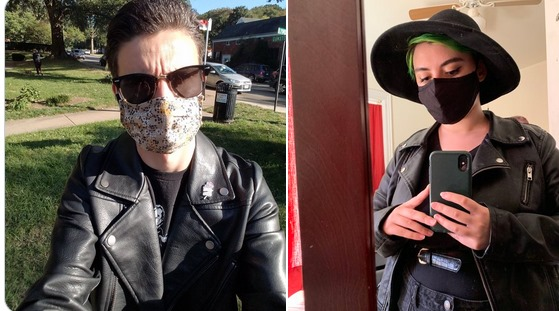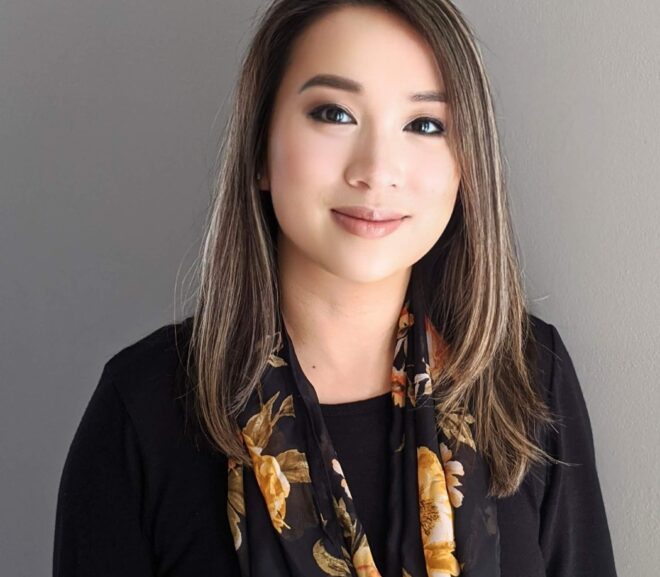“It’s really important to us that we be a resource for autistic and neurodivergent people directly in a market that’s so inundated with parent-focused resources.”
Tag: sexuality
Jenny Mai Phan is an Asian American autistic autism researcher, an Interagency Autism Coordinating Committee (IACC) member, and the mother of four children, two of whom are autistic.
While we know that the majority of autistic people experience abuse and sexual assault during their lifetimes, autistic women are particularly vulnerable, and we need more research in this area.
As an autistic person, I decided to watch “As We See It” to see how autistic people are represented. After watching the whole season, I concluded that “As We See It” should be called “As Non-autistic Caregivers See It.”
Today’s INSAR 2019 Special Interest Group (SIG) on Gender, Sexuality, and Romantic Relationships was led by Laura Graham Holmes and Jeroen Dewinter, and co-led by Anna van der Miesen. Essentially, relationships and sexuality are central to everyone’s health and well-being. But there isn’t enough useful research and materials available fo autistic people of all ages and abilities, their families, and healthcare professionals, and many have expressed the need for research and guidance. So that’s what the SIG leaders and the participants in this well-attended session talked about. Any errors or omissions in the highlights below are on us. SIG participants Sara L, Dori Z, Jac dH, and Christina N, in discussion [image: Four people of varying gender identities and neurotypes, talking at a conference table.] Last year’s Gender, Sexuality, and Romantic Relationships INSAR SIG was about determining the most important issues for the autistic community, in terms of gender and…
Photo © Ted Eytan | Creative Commons/Flickr [image: Multiracial crowd rallying with flags and signs behind a banner reading “Trans Solidarity against transphobia for justice”.] Maxfield Sparrow unstrangemind.com Ten years ago, I wanted to write a paper about autism and gender issues for a gender and sexuality conference at which I had previously presented. I started the research, then dropped into a depression after realizing how little material was available, and that the existing research about autism and gender was both dismal, and erasing. The medical journals talked about transgender autistic children as if their gender issues were delusions, mere symptoms of their autism. I never wrote that paper. Today, not only is there good autism information available, but the “double rainbow” of being both autistic and LGBTQIA+* is just beginning to be more accepted and understood. We have a long way to go, but people are beginning to understand…
[image: Black horizonal rectangle with white text on the left reading “Association For Autistic Community,” and a green, blue, and red infinity sign on the right.] Zoe Cannon When I decided to go to the first Association for Autistic Community Conference in 2014, I had been lurking on the outskirts of the online autistic community for years. At first I wasn’t sure whether to go at all. Aside from the practical issues — travel drains my inner resources like nothing else — I didn’t know whether I was willing to step into a group of autistic people and claim that I was one of them. They might tell me I was lying; they might turn me away. But I was hungry for a taste of belonging, hungry enough to face packing and plane tickets and a crowd of strangers … and if I didn’t belong, I would rather find out…
We get frequent requests for puberty and sexuality resources and information. While in general, good frank resources are good frank resources — witness the UU Our Whole Lives Lifespan Sexuality Education Curricula — specific guides can be helpful too, such as The Girls’ Guide to Growing Up. This book takes girls through all the aspects of puberty: changing bodies, privacy, menstruation, masturbation, etc. It is also written with even more frankness than most puberty guides; I’ve never seen a photographic guide to understanding when it might be time to change a sanitary pad, for instance. And it reassures girls that while some people have crushes, others don’t (since many autistic people are asexual, this casual reassurance during such a foundational time is important). It also tends to use “person” instead of “boy” when discussing sexual feelings, which reflects reality. The tone overall is very friendly and comforting. It is written…
Laura Shumaker www.laurashumaker.com The morning of May 22, 2006, I set my alarm for 4 a.m. I wanted to be the first one to wish Matthew a happy birthday. He was in a college program at Camphill Soltane near Philadelphia. Matthew answered the house telephone on the first ring. He knew I would call. “Matthew!” I said. “You’re 20! Can you believe it?” “Yes,” he responded flatly. “But Mom? I have something very important to ask you. I’ve been thinking about Amy. Can we go see her?” Matthew had met Amy three years before during his first year at Camphill. Like Matthew, Amy has autism. The staff at the school had told us that they liked each other a lot and we were thrilled; since Matthew’s diagnosis years ago, we grieved at the thought of him living a solitary life. By the time Matthew became interested in girls, he picked…
Lindsey Nebeker nakedbrainink.com One of my blog readers who is on the autism spectrum brought up a concern regarding recent bedroom issues. This person is finding that the process of achieving orgasm has become increasingly difficult: “[Since learning more about my ASD diagnosis] I’ve been noticing a growing awareness in what is going on around me and what my body is feeling … and it is becoming sort of distracting during sex, mainly orgasm. As I began to feel my self start to climax I suddenly became very focused on the noises and things in the room such as the fan running, and how the moving air felt on my skin. Then I suddenly became overwhelmed with my body itself, to the point that it took away the orgasm. I focused intensely on how the sheets felt against my skin, how my partner’s skin felt on mine, how my hands…






